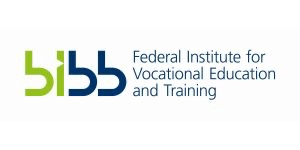In responding to demands for new qualifications and competencies, African TVET systems have been more agile in updating curricula than in upgrading teachers’/ trainers’ knowledge, skills and competencies.
A study of seven African countries found that all had adopted competency-based training (CBT) approaches and updated their training curricula with help from industry or international partners. However, TVET teachers were often unable to implement these curricula using modern teaching methods. (IIPE UNESCO 2020)
One reason for this, according to interviewees participating in the BILT scoping study, is that while all African countries seem to have systems in place for training TVET teachers and lecturers, the training that TVET teaching staff receive tends to be the same as that for general education teachers. Thus, the focus tends to be on theoretical training rather than on practical skills development using CBT approaches. (BILT scoping study of current TVET trends in Africa carried out in 2021)
Furthermore, while emerging workplace demands mean that workers are expected to possess a new set of transversal skills – including life skills, ICT skills and entrepreneurial skills – most teacher education programmes in Africa do not teach these skills. (European Commission 2015)
Industry experience is also not a formal entry requirement for secondary-level TVET teaching staff in most African countries and TVET institutions, which limits teachers’/trainers’ knowledge and skills in relation to new practices and technologies used in the workplace. (UNESCO-UNEVOC 2020)
African TVET teachers’/trainers’ access to any kind of training has tended to be limited. A recent study found that, prior to the COVID-19 pandemic, only 50% of secondary teachers across Sub-Saharan Africa received the minimum required teacher training. (UNESCO-UNEVOC 2022)
“Fast changes in technology pose a great challenge to TVET, not only in developing new programmes but in training the trainers.”
- Interviewee from Seychelles participating in BILT scoping study of current TVET trends in Africa carried out in 2021

AdobeStock_436030729
Barriers to African teachers'/ trainers' acquisition of skills to deliver new qualifications and competencies in TVET have come from the demand side as well as the supply side.

AdobeStock_436030729
Engaging industry in TVET teacher/trainer training can improve the responsiveness of TVET systems to demands for new qualifications and competencies.
The BILT project is implemented by

with support of

and sponsored by

UNESCO-UNEVOC International Centre
for Technical and Vocational Education and Training
UN Campus, Platz der Vereinten Nationen 1
53113 Bonn, Germany
Contact
Data privacy statement | Contacts | © UNESCO-UNEVOC